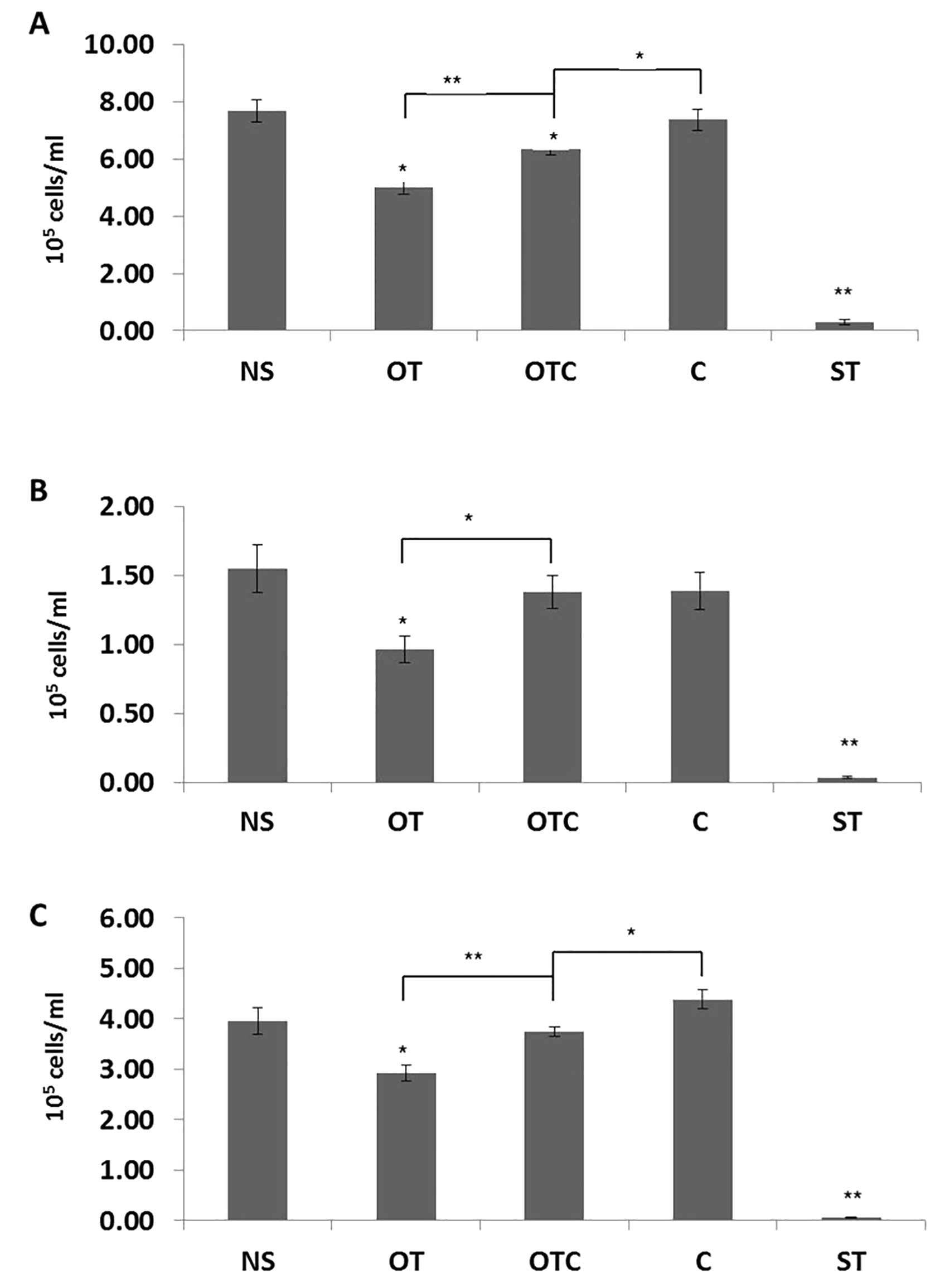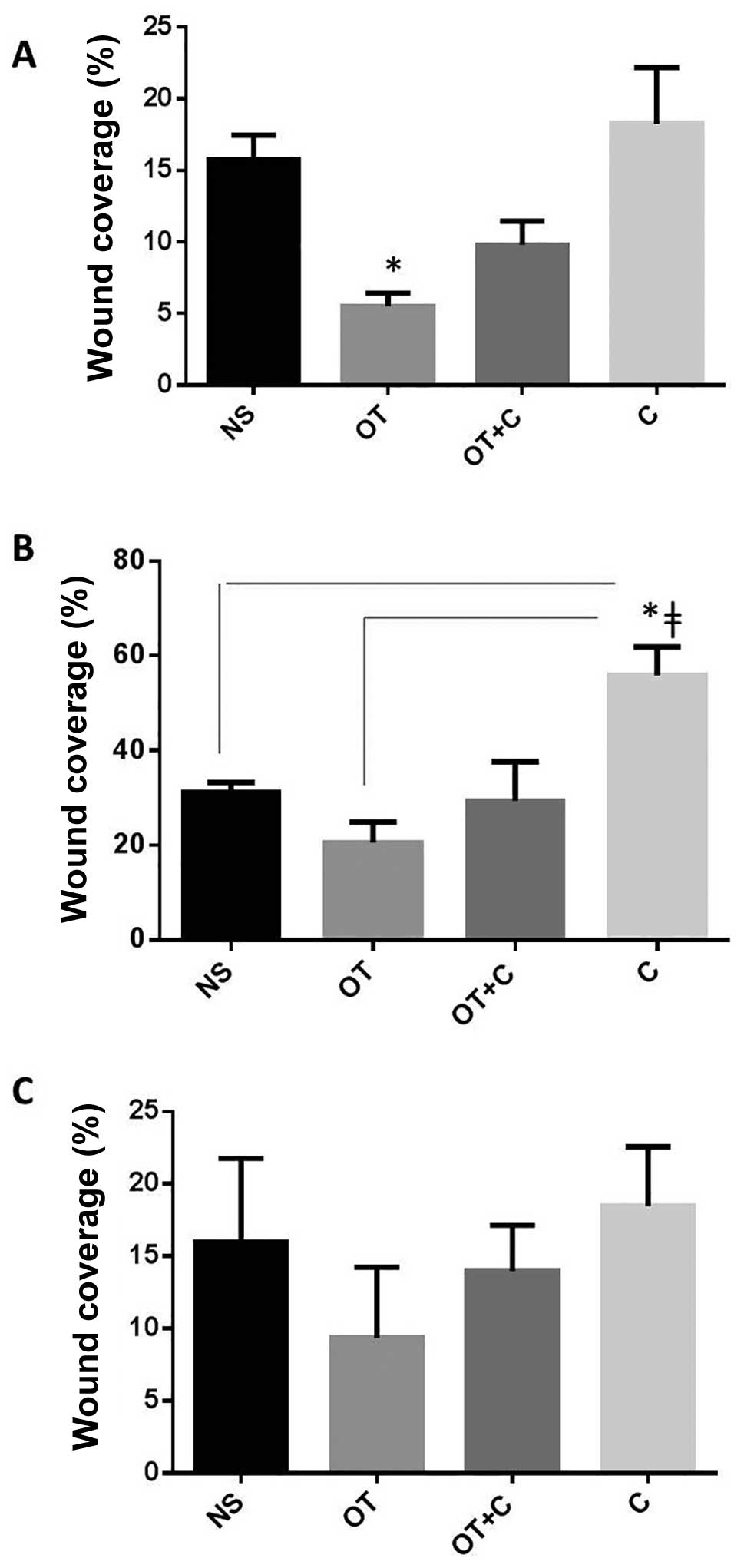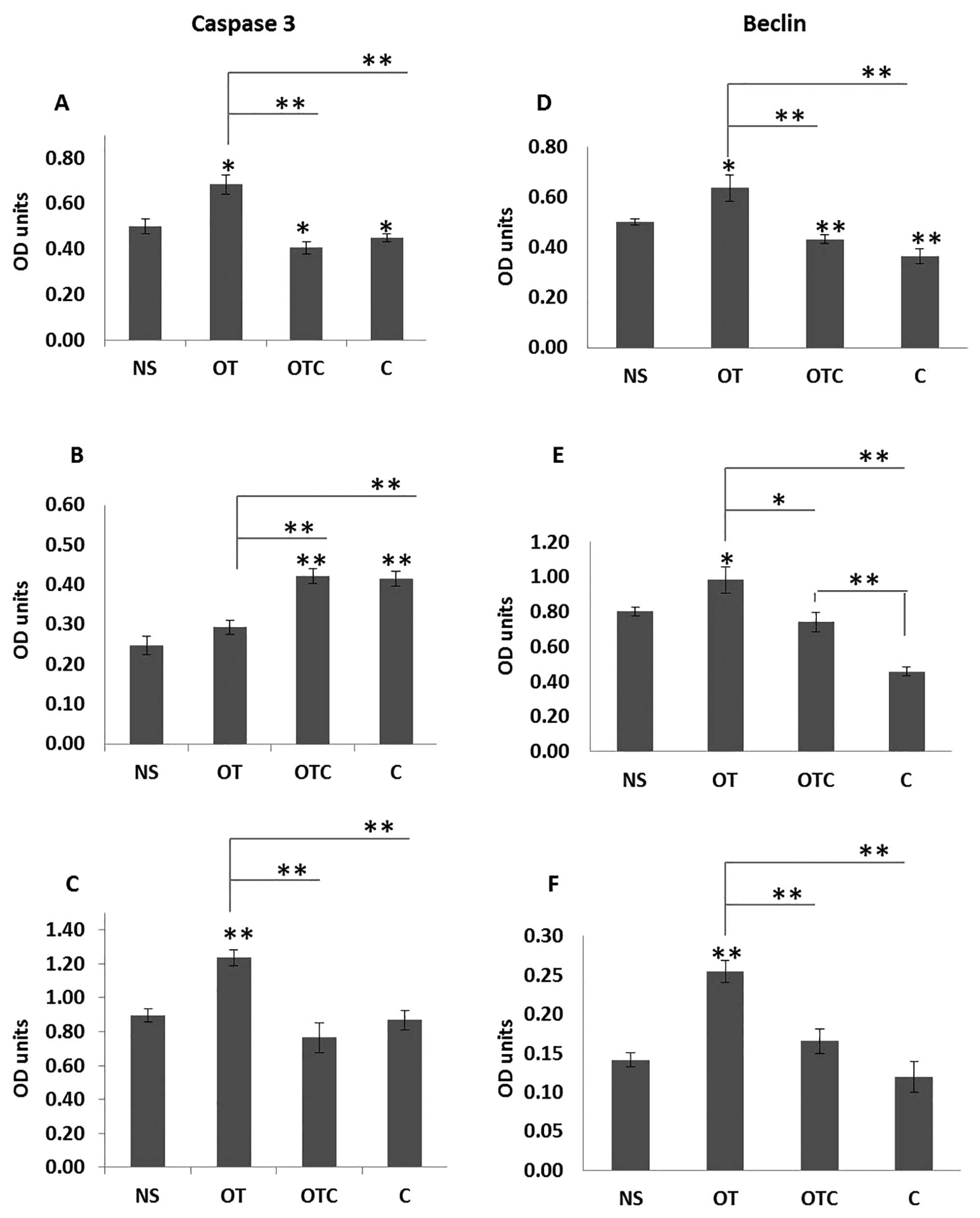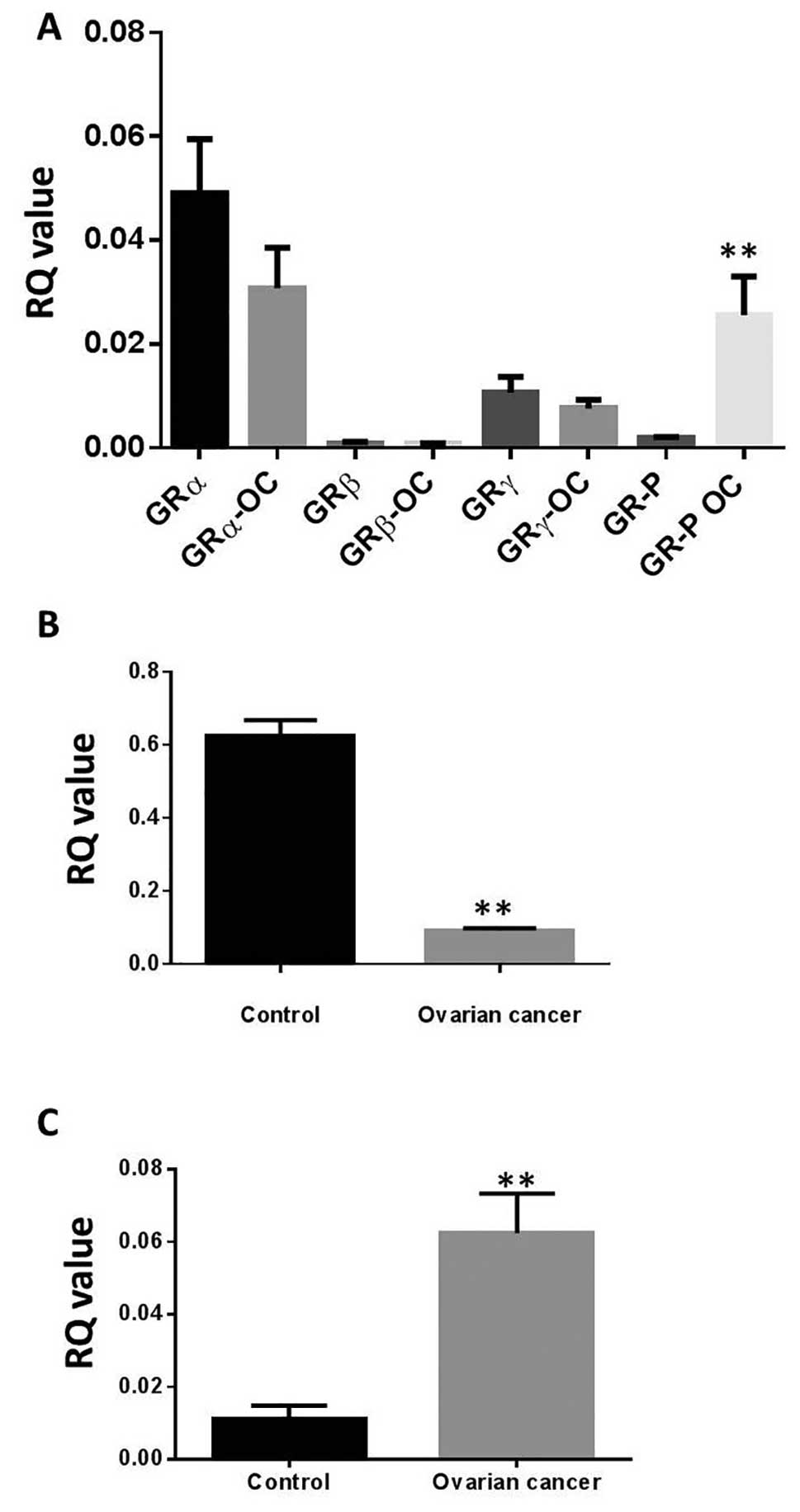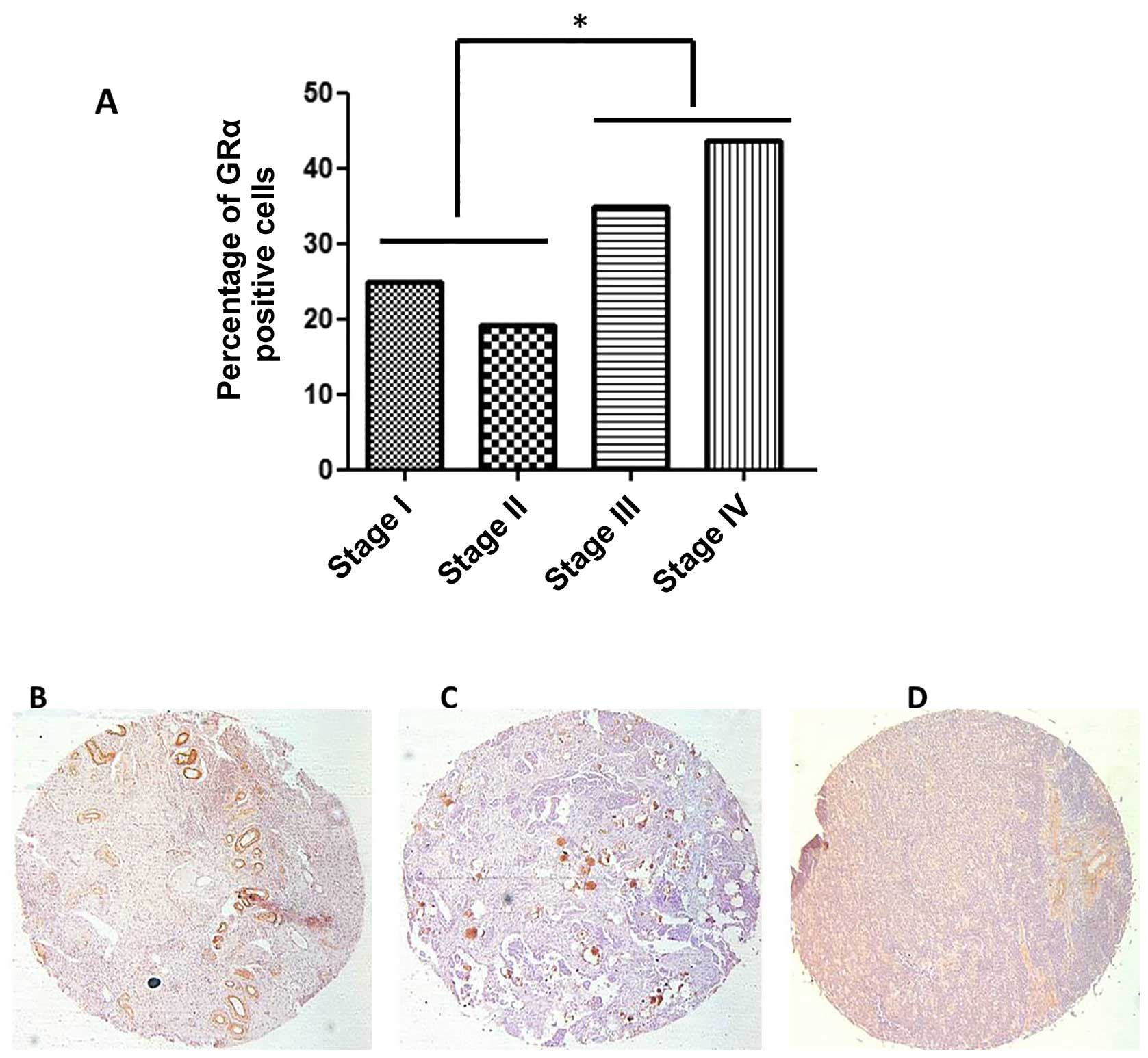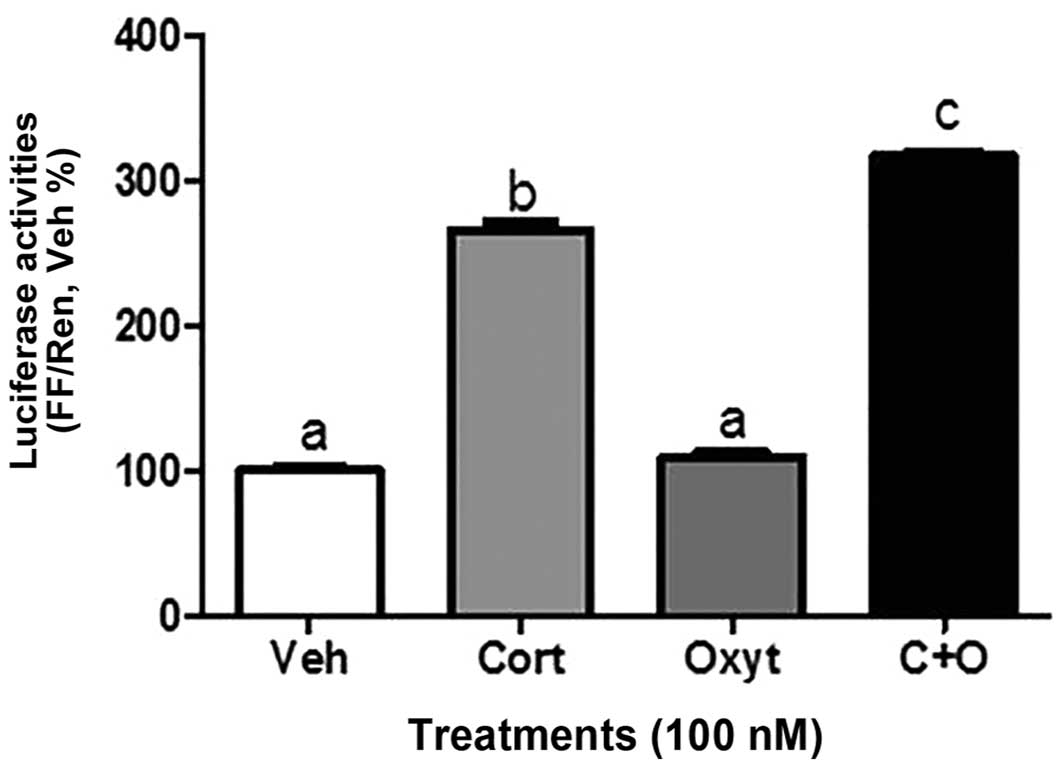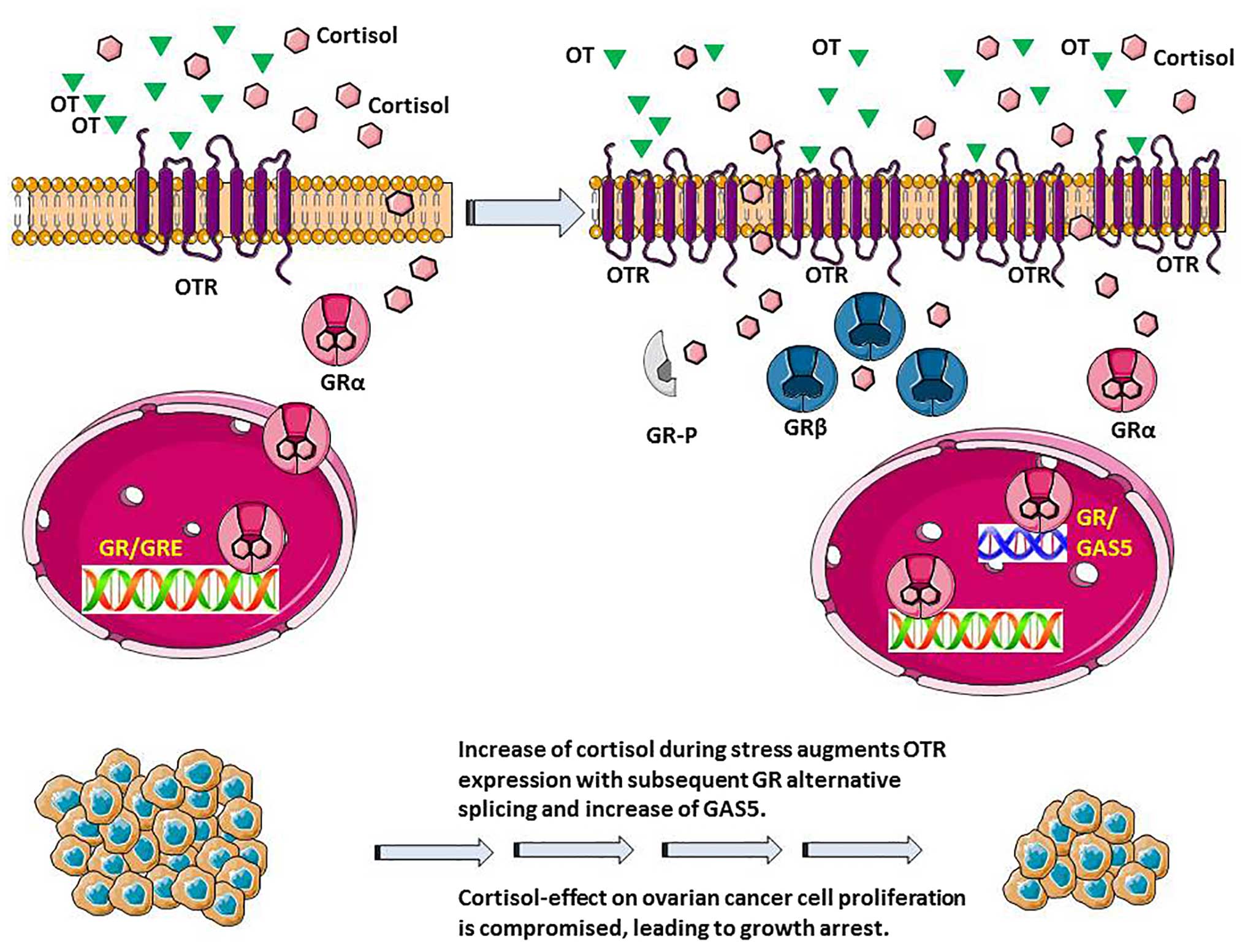|
1
|
Chida Y and Steptoe A: Positive
psychological well-being and mortality: A quantitative review of
prospective observational studies. Psychosom Med. 70:741–756. 2008.
View Article : Google Scholar : PubMed/NCBI
|
|
2
|
Pervanidou P and Chrousos GP: Metabolic
consequences of stress during childhood and adolescence.
Metabolism. 61:611–619. 2012. View Article : Google Scholar
|
|
3
|
Gidron Y and Ronson A: Psychosocial
factors, biological mediators, and cancer prognosis: A new look at
an old story. Curr Opin Oncol. 20:386–392. 2008. View Article : Google Scholar : PubMed/NCBI
|
|
4
|
Thaker PH and Sood AK: Neuroendocrine
influences on cancer biology. Semin Cancer Biol. 18:164–170. 2008.
View Article : Google Scholar : PubMed/NCBI
|
|
5
|
Smith SM and Vale WW: The role of the
hypothalamic-pituitary-adrenal axis in neuroendocrine responses to
stress. Dialogues Clin Neurosci. 8:383–395. 2006.
|
|
6
|
Kaptein A and Weinman J: Health
Psychology: Some Introductory Remarks. Malden: Blackwell
Publishing; 2004
|
|
7
|
Geronikolou SA, Chamakou A, Mantzou A,
Chrousos G and Kanaka-Gantenbein C: Frequent cellular phone use
modifies hypothalamic-pituitary-adrenal axis response to a cellular
phone call after mental stress in healthy children and adolescents:
A pilot study. Sci Total Environ. 536:182–188. 2015. View Article : Google Scholar : PubMed/NCBI
|
|
8
|
Nausheen B, Gidron Y, Peveler R and
Moss-Morris R: Social support and cancer progression: A systematic
review. J Psychosom Res. 67:403–415. 2009. View Article : Google Scholar : PubMed/NCBI
|
|
9
|
Watson M, Homewood J, Haviland J and Bliss
JM: Influence of psychological response on breast cancer survival:
10-year follow-up of a population-based cohort. Eur J Cancer.
41:1710–1714. 2005. View Article : Google Scholar : PubMed/NCBI
|
|
10
|
Sood AK, Bhatty R, Kamat AA, Landen CN,
Han L, Thaker PH, Li Y, Gershenson DM, Lutgendorf S and Cole SW:
Stress hormone-mediated invasion of ovarian cancer cells. Clin
Cancer Res. 12:369–375. 2006. View Article : Google Scholar : PubMed/NCBI
|
|
11
|
Rhen T and Cidlowski JA: Antiinflammatory
action of glucocorticoids - new mechanisms for old drugs. N Engl J
Med. 353:1711–1723. 2005. View Article : Google Scholar : PubMed/NCBI
|
|
12
|
De Bosscher K, Vanden Berghe W and
Haegeman G: The interplay between the glucocorticoid receptor and
nuclear factor-kappaB or activator protein-1: Molecular mechanisms
for gene repression. Endocr Rev. 24:488–522. 2003. View Article : Google Scholar : PubMed/NCBI
|
|
13
|
Tissing WJE, Meijerink JPP, den Boer ML
and Pieters R: Molecular determinants of glucocorticoid sensitivity
and resistance in acute lymphoblastic leukemia. Leukemia. 17:17–25.
2003. View Article : Google Scholar : PubMed/NCBI
|
|
14
|
Kino T, Hurt DE, Ichijo T, Nader N and
Chrousos GP: Non-coding RNA gas5 is a growth arrest- and
starvation-associated repressor of the glucocorticoid receptor. Sci
Signal. 3:ra82010. View Article : Google Scholar
|
|
15
|
Inbar S, Neeman E, Avraham R, Benish M,
Rosenne E and Ben-Eliyahu S: Do stress responses promote leukemia
progression? An animal study suggesting a role for epinephrine and
prostaglandin-E2 through reduced NK activity. PLoS One.
6:e192462011. View Article : Google Scholar : PubMed/NCBI
|
|
16
|
Maes M, Song C, Lin A, De Jongh R, Van
Gastel A, Kenis G, Bosmans E, De Meester I, Benoy I, Neels H, et
al: The effects of psychological stress on humans: Increased
production of pro-inflammatory cytokines and a Th1-like response in
stress-induced anxiety. Cytokine. 10:313–318. 1998. View Article : Google Scholar : PubMed/NCBI
|
|
17
|
Powell DJH, Liossi C, Moss-Morris R and
Schlotz W: Unstimulated cortisol secretory activity in everyday
life and its relationship with fatigue and chronic fatigue
syndrome: A systematic review and subset meta-analysis.
Psychoneuroendocrinology. 38:2405–2422. 2013. View Article : Google Scholar : PubMed/NCBI
|
|
18
|
Volden PA and Conzen SD: The influence of
glucocorticoid signaling on tumor progression. Brain Behav Immun.
30(Suppl): S26–S31. 2013. View Article : Google Scholar
|
|
19
|
Weinrib AZ, Sephton SE, Degeest K, Penedo
F, Bender D, Zimmerman B, Kirschbaum C, Sood AK, Lubaroff DM and
Lutgendorf SK: Diurnal cortisol dysregulation, functional
disability, and depression in women with ovarian cancer. Cancer.
116:4410–4419. 2010. View Article : Google Scholar : PubMed/NCBI
|
|
20
|
Sephton SE, Lush E, Dedert EA, Floyd AR,
Rebholz WN, Dhabhar FS, Spiegel D and Salmon P: Diurnal cortisol
rhythm as a predictor of lung cancer survival. Brain Behav Immun.
30(Suppl): S163–S170. 2013. View Article : Google Scholar
|
|
21
|
Ebner NC, Maura GM, Macdonald K, Westberg
L and Fischer H: Oxytocin and socioemotional aging: Current
knowledge and future trends. Front Hum Neurosci. 7:4872013.
View Article : Google Scholar : PubMed/NCBI
|
|
22
|
Kosfeld M, Heinrichs M, Zak PJ,
Fischbacher U and Fehr E: Oxytocin increases trust in humans.
Nature. 435:673–676. 2005. View Article : Google Scholar : PubMed/NCBI
|
|
23
|
Neumann ID and Landgraf R: Balance of
brain oxytocin and vasopressin: Implications for anxiety,
depression, and social behaviors. Trends Neurosci. 35:649–659.
2012. View Article : Google Scholar : PubMed/NCBI
|
|
24
|
Uvnäs-Moberg K: Oxytocin may mediate the
benefits of positive social interaction and emotions.
Psychoneuroendocrinology. 23:819–835. 1998. View Article : Google Scholar
|
|
25
|
Heinrichs M, Baumgartner T, Kirschbaum C
and Ehlert U: Social support and oxytocin interact to suppress
cortisol and subjective responses to psychosocial stress. Biol
Psychiatry. 54:1389–1398. 2003. View Article : Google Scholar : PubMed/NCBI
|
|
26
|
Thibonnier M, Conarty DM, Preston JA,
Plesnicher CL, Dweik RA and Erzurum SC: Human vascular endothelial
cells express oxytocin receptors. Endocrinology. 140:1301–1309.
1999.PubMed/NCBI
|
|
27
|
Copland JA, Ives KL, Simmons DJ and Soloff
MS: Functional oxytocin receptors discovered in human osteoblasts.
Endocrinology. 140:4371–4374. 1999. View Article : Google Scholar : PubMed/NCBI
|
|
28
|
Bussolati G, Cassoni P, Ghisolfi G, Negro
F and Sapino A: Immunolocalization and gene expression of oxytocin
receptors in carcinomas and non-neoplastic tissues of the breast.
Am J Pathol. 148:1895–1903. 1996.PubMed/NCBI
|
|
29
|
Cassoni P, Marrocco T, Deaglio S, Sapino A
and Bussolati G: Biological relevance of oxytocin and oxytocin
receptors in cancer cells and primary tumors. Ann Oncol. 12(Suppl
2): S37–S39. 2001. View Article : Google Scholar
|
|
30
|
Morita T, Shibata K, Kikkawa F, Kajiyama
H, Ino K and Mizutani S: Oxytocin inhibits the progression of human
ovarian carcinoma cells in vitro and in vivo. Int J Cancer.
109:525–532. 2004. View Article : Google Scholar : PubMed/NCBI
|
|
31
|
Longuespée R, Boyon C, Desmons A, Vinatier
D, Leblanc E, Farré I, Wisztorski M, Ly K, D'Anjou F, Day R, et al:
Ovarian cancer molecular pathology. Cancer Metastasis Rev.
31:713–732. 2012. View Article : Google Scholar : PubMed/NCBI
|
|
32
|
Bourton E, Foster H, Plowman P, Harvey A
and Parris C: Hypersensitivity of BRCA1 heterozygote lymphoblastoid
cells to gamma radiation and PARP inhibitors. J Genet Syndr Gene
Ther. 4:1462013.
|
|
33
|
Mparmpakas D, Zachariades E, Sotiriadis G,
Goumenou A, Harvey AJ, Gidron Y and Karteris E: Differential
expression of placental glucocorticoid receptors and growth
arrest-specific transcript 5 in term and preterm pregnancies:
Evidence for involvement of maternal stress. Obstet Gynecol Int.
2014:2392782014. View Article : Google Scholar : PubMed/NCBI
|
|
34
|
Foster HA, Davies J, Pink RC, Turkcigdem
S, Goumenou A, Carter DR, Saunders NJ, Thomas P and Karteris E: The
human myometrium differentially expresses mTOR signalling
components before and during pregnancy: Evidence for regulation by
progesterone. J Steroid Biochem Mol Biol. 139:166–172. 2014.
View Article : Google Scholar
|
|
35
|
Kelder J, Azevedo R, Pang Y, de Vlieg J,
Dong J and Thomas P: Comparison between steroid binding to membrane
progesterone receptor alpha (mPRalpha) and to nuclear progesterone
receptor: Correlation with physicochemical properties assessed by
comparative molecular field analysis and identification of
mPRalpha-specific agonists. Steroids. 75:314–322. 2010. View Article : Google Scholar : PubMed/NCBI
|
|
36
|
Mparmpakas D, Zachariades E, Goumenou A,
Gidron Y and Karteris E: Placental DEPTOR as a stress sensor during
pregnancy. Clin Sci (Lond). 122:349–359. 2012. View Article : Google Scholar
|
|
37
|
Harvey AJ, Pennington CJ, Porter S, Burmi
RS, Edwards DR, Court W, Eccles SA and Crompton MR: Brk protects
breast cancer cells from autophagic cell death induced by loss of
anchorage. Am J Pathol. 175:1226–1234. 2009. View Article : Google Scholar : PubMed/NCBI
|
|
38
|
Kumar D, Shankar S and Srivastava RK:
Rottlerin-induced autophagy leads to the apoptosis in breast cancer
stem cells: Molecular mechanisms. Mol Cancer. 12:1712013.
View Article : Google Scholar : PubMed/NCBI
|
|
39
|
Baehrecke EH: Autophagy: Dual roles in
life and death? Nat Rev Mol Cell Biol. 6:505–510. 2005. View Article : Google Scholar : PubMed/NCBI
|
|
40
|
Arden-Close E, Gidron Y and Moss-Morris R:
Psychological distress and its correlates in ovarian cancer: A
systematic review. Psychooncology. 17:1061–1072. 2008. View Article : Google Scholar : PubMed/NCBI
|
|
41
|
Schrepf A, Clevenger L, Christensen D,
DeGeest K, Bender D, Ahmed A, Goodheart MJ, Dahmoush L, Penedo F,
Lucci JA III, et al: Cortisol and inflammatory processes in ovarian
cancer patients following primary treatment: Relationships with
depression, fatigue, and disability. Brain Behav Immun. 30(Suppl):
S126–S134. 2013. View Article : Google Scholar :
|
|
42
|
Lin H-X, Qiu H-J, Zeng F, Rao H-L, Yang
G-F, Kung H-F, Zhu XF, Zeng YX, Cai MY and Xie D: Decreased
expression of Beclin 1 correlates closely with Bcl-xL expression
and poor prognosis of ovarian carcinoma. PLoS One. 8:e605162013.
View Article : Google Scholar : PubMed/NCBI
|
|
43
|
Shen Y, Li DD, Wang LL, Deng R and Zhu XF:
Decreased expression of autophagy-related proteins in malignant
epithelial ovarian cancer. Autophagy. 4:1067–1068. 2008. View Article : Google Scholar : PubMed/NCBI
|
|
44
|
Melhem A, Yamada SD, Fleming GF, Delgado
B, Brickley DR, Wu W, Kocherginsky M and Conzen SD: Administration
of glucocorticoids to ovarian cancer patients is associated with
expression of the anti-apoptotic genes SGK1 and MKP1/DUSP1 in
ovarian tissues. Clin Cancer Res. 15:3196–3204. 2009. View Article : Google Scholar : PubMed/NCBI
|
|
45
|
Zhang C, Kolb A, Mattern J, Gassler N,
Wenger T, Herzer K, Debatin KM, Büchler M, Friess H, Rittgen W, et
al: Dexamethasone desensitizes hepatocellular and colorectal
tumours toward cytotoxic therapy. Cancer Lett. 242:104–111. 2006.
View Article : Google Scholar
|
|
46
|
Erbaş O, Oltulu F and Taşkiran D:
Amelioration of rotenone-induced dopaminergic cell death in the
striatum by oxytocin treatment. Peptides. 38:312–317. 2012.
View Article : Google Scholar
|
|
47
|
Colditz GA and Rosner B: Cumulative risk
of breast cancer to age 70 years according to risk factor status:
Data from the Nurses' Health Study. Am J Epidemiol. 152:950–964.
2000. View Article : Google Scholar : PubMed/NCBI
|
|
48
|
Danforth KN, Tworoger SS, Hecht JL, Rosner
BA, Colditz GA and Hankinson SE: Breastfeeding and risk of ovarian
cancer in two prospective cohorts. Cancer Causes Control.
18:517–523. 2007. View Article : Google Scholar : PubMed/NCBI
|
|
49
|
Modugno F, Ness RB and Wheeler JE:
Reproductive risk factors for epithelial ovarian cancer according
to histologic type and invasiveness. Ann Epidemiol. 11:568–574.
2001. View Article : Google Scholar : PubMed/NCBI
|
|
50
|
Lutgendorf SK, Sood AK, Anderson B, McGinn
S, Maiseri H, Dao M, Sorosky JI, De Geest K, Ritchie J and Lubaroff
DM: Social support, psychological distress, and natural killer cell
activity in ovarian cancer. J Clin Oncol. 23:7105–7113. 2005.
View Article : Google Scholar : PubMed/NCBI
|
|
51
|
Lutgendorf SK, Weinrib AZ, Penedo F,
Russell D, DeGeest K, Costanzo ES, Henderson PJ, Sephton SE,
Rohleder N, Lucci JA III, et al: Interleukin-6, cortisol, and
depressive symptoms in ovarian cancer patients. J Clin Oncol.
26:4820–4827. 2008. View Article : Google Scholar : PubMed/NCBI
|
|
52
|
Light KC, Grewen KM and Amico JA: More
frequent partner hugs and higher oxytocin levels are linked to
lower blood pressure and heart rate in premenopausal women. Biol
Psychol. 69:5–21. 2005. View Article : Google Scholar : PubMed/NCBI
|
|
53
|
Beaufort CM, Helmijr JCA, Piskorz AM,
Hoogstraat M, Ruigrok-Ritstier K, Besselink N, Murtaza M, van
IJcken WF, Heine AA, Smid M, et al: Ovarian cancer cell line panel
(OCCP): Clinical importance of in vitro morphological subtypes.
PLoS One. 9:e1039882014. View Article : Google Scholar : PubMed/NCBI
|
|
54
|
Bai H, Li H, Li W, Gui T, Yang J, Cao D
and Shen K: The PI3K/AKT/mTOR pathway is a potential predictor of
distinct invasive and migratory capacities in human ovarian cancer
cell lines. Oncotarget. 6:25520–25532. 2015. View Article : Google Scholar : PubMed/NCBI
|















